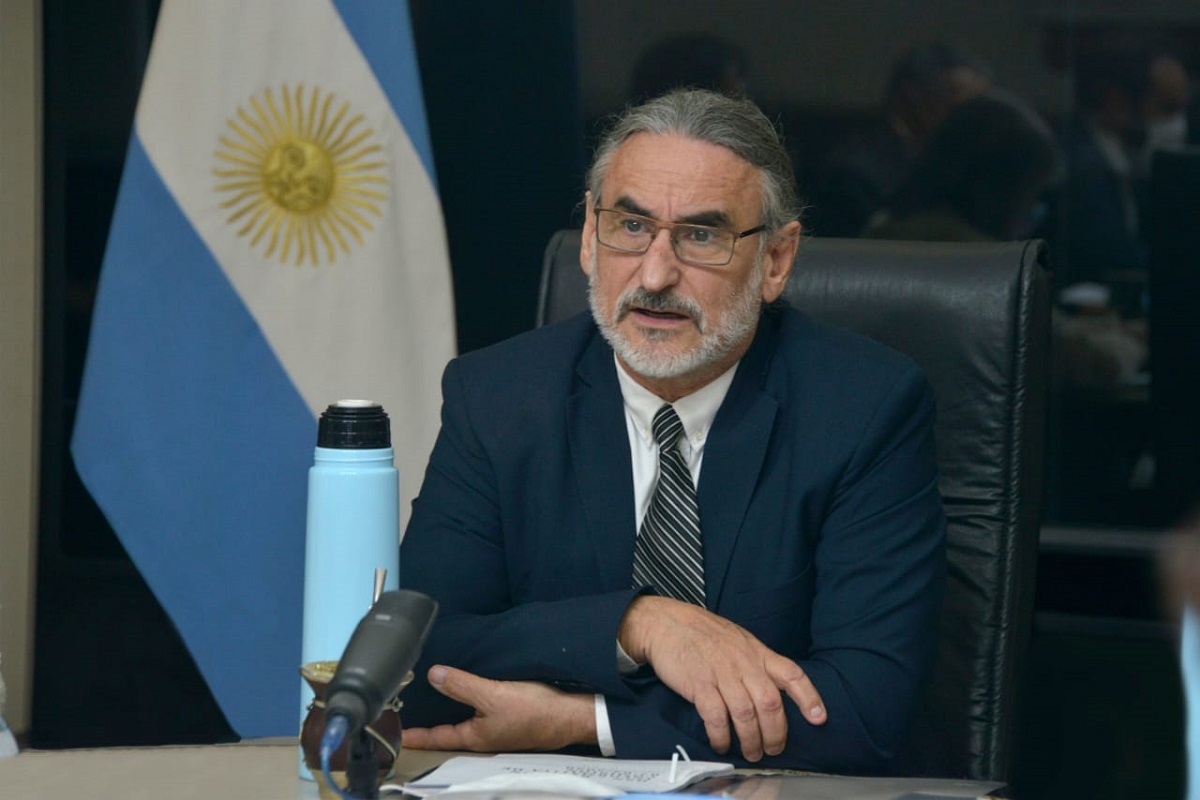The remarks were made during a Roundtable Discussion about the role of farmers and rural communities in the sustainability of agri-food systems.

Washington, 10 August 2021 (IICA). Minister of Agriculture, Livestock and Fisheries of Argentina, Luis Basterra, argued that the international community must consider making payments for ecosystem services to countries that are making a significant contribution to biodiversity conservation and the fight against climate change at the global level.
“The world has undergone major transformation throughout its history and today the Americas possesses—from both a qualitative and a quantitative perspective—a wealth of biodiversity and of carbon sequestration habitats. As such, humanity should seriously consider making payments for its ecosystem services”, said Basterra, during a Roundtable Discussion about the role of farmers and rural communities in the sustainability of agri-food systems.
The debate was organized by the Council of the Americas and the Inter-American Institute for Cooperation on Agriculture (IICA) and featured presenters from across the hemisphere, representing both the public and private sectors.
The Minister remarked that, “When we consider that opportunity cost—from a monetarist perspective—typically favors capital, exploitation of the land or a change in use of a natural environment to an agricultural environment, humanity should identify measures to support payment for ecosystem services, because otherwise, any discussions will continue to be abstract. It will simply be theoretical and will not yield the expected results”.
Moreover, Basterra stated that agriculture is the solution to many of the problems humans face as far as agri-food system sustainability is concerned and insisted that there should be a “fair and balanced transition to achieve the Sustainable Development Goals (SDGs), which are essential for the survival of the species”.
The meeting was one in a series of roundtable discussions organized to discuss the manner in which food will be produced and consumed in the future and the situation of rural communities in the Americas. The debates are being organized in preparation for the 2021 United Nations Food Systems Summit.
In addition to Basterra, other participants in the discussion were renowned scientist, Rattan Lal, who is considered the world’s leading authority on soil sciences; the Guyanese Minister of Agriculture, Zulfikar Mustapha; the CEO of Pepsico Latin America, Paula Santilli; Head of Sustainability and Business Stewardship at Bayer Crop Science, Klaus Kunz; and Walmart’s Director of Global Government Affairs, Christian Gómez.
Eric Farnsworth, Vice-President of The Americas Society/Council of the Americas (AS/COA), and Manuel Otero, Director General of IICA, delivered the presentation and closing remarks of the event.
Basterra remarked that in the ongoing global discussion about the future of agri-food systems, “the future of the human race is in question in the context of a world that is experiencing the effects of development. This is not a recent process, but something that began with the industrial era”.
For example, he mentioned that, “A country such as Argentina has decisively embraced the concept of sustainability. There is a commitment by both the private and public sectors to identify the best ways to produce and to preserve ecosystems. We can proudly say that much of our land is cultivated employing the zero till method, which captures part of the carbon that is lost, through practices that would previously have consumed carbon. The zero till method is commonly used to cultivate commodities and has contributed to restoring the fertility and sustainable use of soil”.
The Argentinian minister also emphasized the collaboration between the governments of all the countries of the Americas to arrive at a joint position to present at the Food Systems Summit and thanked IICA for its role in establishing this consensus.
“The pandemic has not created the most favorable environment for solidarity. As such, the American hemisphere is providing an example to follow”.
More information:
Institutional Communication Division.
comunicacion.institucional@iica.int











